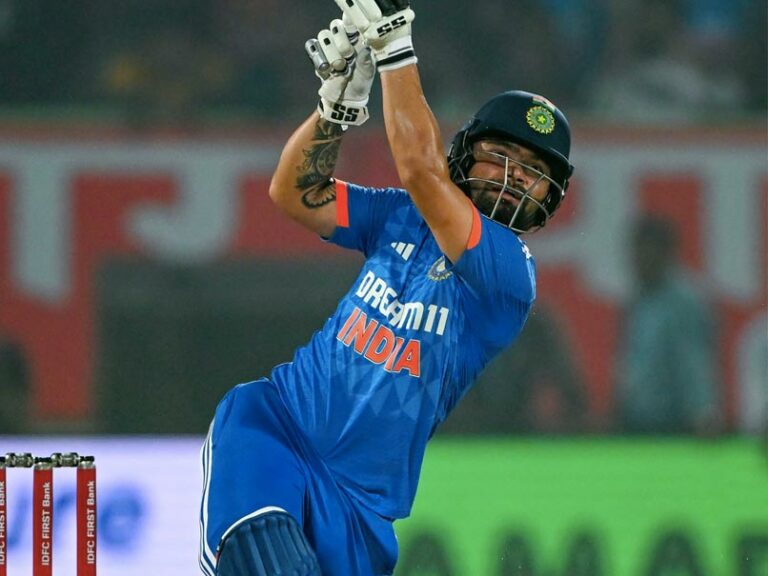Mental Health Awareness in Professional Cricket
Reddy Anna Book, Reddy Book Club: Professional cricketers may exhibit various signs of mental health struggles that manifest differently from person to person. One common indication is a noticeable decline in performance on the field despite adequate physical capabilities. This can include persistent lapses in concentration, uncharacteristic errors, or a lack of motivation during training and matches.
In addition, frequent mood swings or sudden changes in behavior could be red flags for underlying mental health issues. Professional cricketers may display increased irritability, anxiety, or withdrawal from social interactions. These shifts in demeanor can impact team dynamics and individual relationships, highlighting the importance of addressing mental health concerns in a timely and supportive manner.
The Impact of Mental Health Issues on Performance in Cricket
Mental health issues can significantly impact a professional cricketer’s performance on the field. The high-pressure environment of competitive cricket can exacerbate existing mental health challenges or trigger new ones, leading to decreased focus, motivation, and confidence. Players may struggle with anxiety, depression, or burnout, affecting their ability to perform at their best and maintain consistency in their game.
Furthermore, mental health issues can also manifest physically, impacting a player’s stamina, coordination, and overall physical well-being. The mind-body connection is crucial in cricket, as mental challenges can directly influence a player’s physical capabilities, including reflexes, decision-making, and injury recovery. It is essential for both players and support staff to recognize the interconnectedness of mental and physical health in order to address and overcome performance-related struggles.
Stigma Surrounding Mental Health in Professional Cricket
Mental health concerns have historically been a taboo topic in the world of professional cricket. Players often fear that admitting to struggling with mental health issues may be perceived as a sign of weakness or may negatively impact their careers. This stigma surrounding mental health can lead to players suffering in silence, without seeking the necessary support and treatment to improve their well-being.
Moreover, the pressure to perform at the highest level in professional cricket can exacerbate mental health challenges for players. The competitive nature of the sport, combined with the expectations from fans, management, and sponsors, can create a toxic environment that discourages open discussions about mental health. As a result, players may feel isolated and reluctant to speak up about their struggles, further perpetuating the stigma surrounding mental health in professional cricket.
Support Systems Available for Cricketers Dealing with Mental Health Challenges
Professional cricketers facing mental health challenges have access to various support systems to help them navigate their struggles. Many cricket boards and associations have designated mental health professionals who provide counseling and therapy services to players in need. These mental health professionals work closely with the athletes to develop personalized treatment plans tailored to their specific needs.
Aside from individual counseling, cricketers can also benefit from peer support groups within their teams. These groups create a safe space for players to share their experiences, seek advice, and offer each other emotional support. Additionally, team coaches and support staff play a crucial role in keeping an eye on players’ well-being and providing guidance on how to access mental health resources when needed.
Importance of Seeking Professional Help for Mental Health Concerns
Seeking professional help for mental health concerns is crucial for professional cricketers facing challenges with their emotional well-being. In the high-pressure environment of professional cricket, players may often neglect their mental health amidst the focus on physical performance. However, it is essential to recognize that mental health is just as important as physical health in ensuring overall well-being and optimal performance on the field.
Professional help can provide cricketers with the necessary tools and strategies to manage their mental health effectively. This may include therapy sessions to address underlying issues, coping mechanisms to deal with stress and anxiety, and medication if needed. By seeking help from qualified professionals, cricketers can better understand and navigate their mental health struggles, leading to improved overall health and performance in their sport.
Strategies for Managing Stress and Anxiety in Professional Cricket
In the high-pressure world of professional cricket, managing stress and anxiety is crucial for players to perform at their best. One effective strategy is for cricketers to incorporate mindfulness techniques into their daily routine. Mindfulness practices such as deep breathing exercises, meditation, and visualization can help players stay focused, calm, and present in the moment, reducing feelings of stress and anxiety.
Another helpful strategy for cricketers dealing with stress and anxiety is to prioritize self-care. This means making time for adequate rest, proper nutrition, and regular exercise to help maintain physical and mental well-being. Taking breaks when needed, setting boundaries, and seeking support from teammates and coaches can also contribute to overall mental wellness on and off the field. By implementing these strategies, cricketers can better cope with the demands of the game and enhance their performance under pressure.
The Role of Coaches and Teammates in Supporting Mental Health
Coaches and teammates play a vital role in supporting the mental health of professional cricketers. They are often the closest people to the players, witnessing their highs and lows both on and off the field. By fostering an environment of trust and open communication, coaches and teammates can create a safe space for cricketers to express their feelings and seek help when needed.
Furthermore, coaches and teammates can help by being observant of any changes in behavior or performance that may indicate underlying mental health struggles. Offering a listening ear, providing encouragement, and directing players to appropriate resources can make a significant difference in helping cricketers navigate the challenges they may face. Ultimately, the support and understanding of coaches and teammates can make a profound impact on a cricketer’s mental well-being and overall performance.
The Connection Between Physical and Mental Health in Cricket
Physical and mental health are intricately connected in the world of professional cricket. The physical demands of the sport can take a toll on players’ mental well-being, leading to heightened stress levels, anxiety, and burnout. Similarly, mental health struggles can have a direct impact on a player’s physical performance, affecting their focus, decision-making abilities, and overall game-day performance.
It is essential for cricketers to recognize the symbiotic relationship between their physical and mental health and prioritize both aspects equally. Engaging in a holistic approach that includes regular exercise, healthy nutrition, adequate rest, and mindfulness practices can help balance the demands of the sport and promote overall well-being. By addressing mental health concerns alongside physical training, players can optimize their performance on the field and enhance their resilience to the pressures of professional cricket.
The Influence of Media and Public Perception on Cricketers’ Mental Well-being
Media scrutiny and public opinion can heavily impact the mental well-being of professional cricketers. Constant coverage, both positive and negative, can create immense pressure on players to perform consistently and live up to high expectations. Criticism and backlash from fans, pundits, and the media can take a toll on a player’s confidence and self-esteem, leading to increased stress and anxiety.
Moreover, the portrayal of cricketers in the media can contribute to the stigma surrounding mental health in the sport. Stereotypes and misconceptions about athletes being invincible or immune to mental health challenges can prevent players from seeking help when needed. The unrealistic image of always being strong and unaffected by external factors can further isolate individuals who are struggling, perpetuating a cycle of silence and suffering.
Tips for Maintaining Mental Wellness in the High-pressure Environment of Professional Cricket
In the high-pressure environment of professional cricket, it is crucial for players to prioritize their mental wellness. One effective tip is to establish a routine that includes time for relaxation and self-care amidst the demands of the sport. Taking breaks to recharge and engage in activities outside of cricket can help players maintain a healthy balance and perspective.
Additionally, practicing mindfulness techniques such as deep breathing exercises or visualization can be beneficial for managing stress and anxiety during intense matches or training sessions. These techniques can help players stay present in the moment and focus on their performance without being overwhelmed by external pressures. It’s essential for cricketers to proactively prioritize their mental well-being to ensure they are performing at their best on and off the field.
What are some signs of mental health struggles that professional cricketers should be aware of?
Signs of mental health struggles in cricketers may include changes in mood, anxiety, difficulty concentrating, decreased performance, and withdrawal from social activities.
How can mental health issues impact a cricketer’s performance on the field?
Mental health issues can impact a cricketer’s performance by affecting their focus, confidence, decision-making abilities, and overall well-being, leading to decreased performance on the field.
Is there a stigma surrounding mental health in professional cricket?
Yes, there is still a stigma surrounding mental health in professional cricket, which can prevent players from seeking help and support for their mental health concerns.
What support systems are available for cricketers dealing with mental health challenges?
Cricketers dealing with mental health challenges can seek support from mental health professionals, team psychologists, counselors, and support groups provided by cricket associations.
Why is it important for cricketers to seek professional help for mental health concerns?
It is important for cricketers to seek professional help for mental health concerns to receive proper treatment, support, and strategies for managing their mental health effectively.
How can cricketers manage stress and anxiety in the high-pressure environment of professional cricket?
Cricketers can manage stress and anxiety by practicing mindfulness techniques, maintaining a healthy work-life balance, engaging in relaxation exercises, and seeking support from mental health professionals.
What role do coaches and teammates play in supporting the mental health of cricketers?
Coaches and teammates play a crucial role in supporting the mental health of cricketers by creating a supportive and understanding team environment, encouraging open communication, and providing resources for mental health support.
How does physical health impact mental health in cricket?
Physical health and mental health are closely connected in cricket, as physical fitness and well-being can positively impact mental health by reducing stress, improving mood, and increasing overall resilience.
What influence does the media and public perception have on cricketers’ mental well-being?
The media and public perception can have a significant impact on cricketers’ mental well-being by adding pressure, scrutiny, and expectations, which can contribute to stress, anxiety, and mental health struggles.
What are some tips for maintaining mental wellness in the high-pressure environment of professional cricket?
Some tips for maintaining mental wellness in professional cricket include practicing self-care, setting boundaries, seeking support when needed, staying connected with loved ones, and prioritizing mental health as part of overall well-being.







